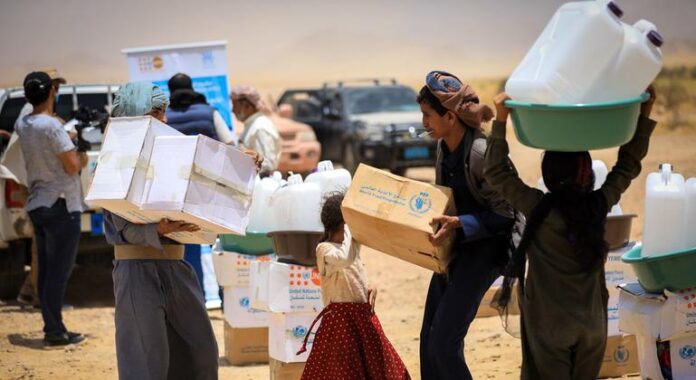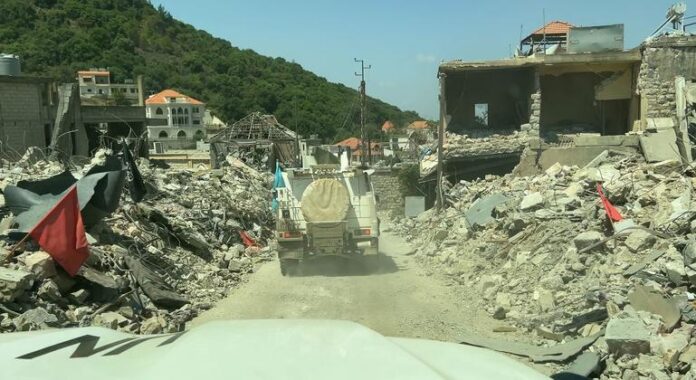More than 50 personnel from the UN, international and national NGOs, civil society, and diplomatic missions, are being held by the de facto Houthi authorities in the capital, Sana’a.
In addition, four UN staff members have been detained since 2021 and 2023.
Protect aid workers
“Attacks on humanitarian workers, including detentions and false accusations, violate international law, endanger safety, and severely hinder the support we provide to the Yemeni people and mediation efforts crucial for advancing the peace process in Yemen,” the officials said in a statement marking the solemn milestone.
They stressed that in the meantime, all detained colleagues must be treated in accordance with international humanitarian law and human rights, including being allowed to contact their families, legal representatives, and organizations.
“We also call for the protection of humanitarian workers, ensuring safe humanitarian space and access to communities we serve,” they added.
The statement was issued by regional directors for CARE, Oxfam and Save the Children, alongside their counterparts from the UN human rights office, OHCHR; the UN Development Programme (UNDP), the UN refugee agency, UNHCR; the UN Children’s Fund (UNICEF), the World Health Organization (WHO) and the World Food Programme (WFP).
© UNICEF/Pham Ha Duy Linh
A young Vietnamese man cleans up debris at his home after Typhoon Yagi swept through Quang Ninh province.
Typhoon Yagi impacts millions in SE Asia: UNICEF
Nearly six million children have been affected by floods and landslides triggered by Typhoon Yagi in Viet Nam, Myanmar, Laos and Thailand, UN humanitarians said on Wednesday.
The UN Children’s Fund, UNICEF, said in an update that the emergency had compromised access to clean water, education, healthcare, food and shelter – and pushed already marginalized communities “deeper into crisis”.
June Kunugi, UNICEF Regional Director for East Asia and Pacific, said that the immediate priority was to restore the essential services that children and families rely on.
Surge in extreme weather
She highlighted the “surge” in extreme weather events in Southeast Asia that had been made worse by climate change; and she noted that when disasters hit, vulnerable children “often pay the highest price”.
Typhoon Yagi is the most powerful storm to hit Asia so far this year.
It has brought torrential rain on top of existing seasonal rainfall, causing damage to more than 850 schools and at least 550 health centres – the vast majority in Viet Nam.
Humanitarian assessments in the region are still ongoing.
Refugee agency urges end to arbitrary detention of asylum-seekers
The detention of asylum-seekers around the world is harmful and contrary to their fundamental right to seek protection – which is why the practice should stop – the UN refugee agency, UNHCR, said on Wednesday.
In a new policy brief for border authorities highlighting best practices in some countries, the UN agency noted that in many others, “asylum-seekers and refugees are often arrested and detained, unable to challenge their situation”.
The UNHCR cited the experience of one Iraqi asylum-seeker who spent two years in a Hungarian transit zone, where his movements were “severely restricted” and he and others faced constant surveillance.
His detention was deemed to be arbitrary by top independent human rights experts meeting at the UN in Geneva, the agency said.
UNHCR also cited a ruling by the European Court of Human Rights which found that four Tunisian nationals who were rescued at sea and brought to a reception facility on the Italian island of Lampedusa “did not have the opportunity to apply for asylum” before their “summary removal” from Italy.
Conditions in the centre were “inhuman and degrading”, according to the court, the agency explained.
Some countries have seen limits imposed on how long asylum-seekers can be detained such as the Republic of South Korea, UNHCR said.
It noted that in March 2023, a South Korean court ruled it unconstitutional to detain asylum-seekers, refugees and migrants indefinitely, while also offering guidance on how long people should be held, as well as alternatives to detention.
A man in eastern Democratic Republic of the Congo has his blood drawn as part of his treatment for mpox.
Global Fund Provides Nearly $10 Million for DR Congo mpox response
The Global Fund to Fight AIDS, Tuberculosis and Malaria (the Global Fund) is supporting the Government of the Democratic Republic of the Congo (DRC) with a $9.5 million cash injection to boost its emergency response to the latest deadly mpox outbreak.
The funding will boost the Government’s response across six of the highest transmission provinces: Equateur, Sud-Ubangui, Sankuru, Tshopo, Sud-Kivu, Nord-Kivu, as well as in and around the capital Kinshasa – home to 17 million people.
DRC is currently battling the largest mpox epidemic in the world, with 5,160 confirmed cases and 25 deaths since the beginning of this year.
The World Health Organization (WHO) says the ability to test in DRC remains low due to limited capacity and availability, and the number of suspected cases is around five times the number of laboratory-confirmed cases.
The Global Fund’s contribution will help enhance disease surveillance systems, with special emphasis on strengthening early warning capabilities; strengthen laboratory systems and diagnostics; help community mobilization and communications; strengthen primary care; and implement infection prevention and control measures.
‘Proven track record’
“Our partnership with the Global Fund and other health partners has a proven track record in reducing infectious diseases,” said Dr. Roger Kamba, Minister of Health and Social Welfare for the DRC.
“People living in areas of conflict and crises often face significant barriers to accessing health services due to damaged infrastructure, insecurity and a shortage of trained health personnel and supplies,” said Peter Sands, the Fund’s Executive Director.
“When a disease outbreak occurs in these places, the challenges are compounded. Strong systems of trusted community health workers, health educators and other local responders are essential for stopping disease spread.”














